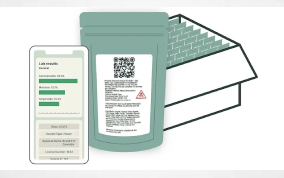Signed 08/24/2021
Written by Judge Nora Barry Fischer, United States District Judge
Issue
Whether the Court will allow the defendant’s motion to modify the conditions of his supervised release allowing him to smoke medical marijuana pursuant to Pennsylvania’s medical marijuana laws?
Rule
A federal court “may after considering the factors set forth in 3553(a) … modify, reduce, or enlarge the conditions of supervised release, at any time prior to the expiration or termination of the term of supervised release.” 18 U.S.C. § 3583(e)(2). But, “[t]he Court cannot, and will not, sanction the violation of federal law by a defendant on … release, even if state law and the weight of public opinion appear to contradict that federal law.” See United States v. Pearlman, 2017 WL 7732811, at *8 (D. Conn. July 7, 2017); see also United States v. Cannon, Crim. No. 21-33, Docket No. 36 at 7 (W.D. Pa. May 18, 2021) (Schwab, J.). And, “… [a] Pennsylvania statute or policy to the contrary cannot override a conflicting federal statute, as the Supremacy Clause unambiguously provides that if there is any conflict between federal and state law, federal law shall prevail.” See 35 Pa. Stat. Ann. and Cons. Stat. § 10231.401(a) at 531 (quoting Gonzales v. Raich, 545 U.S. at 29, 125 S.Ct. 2195) (internal quotation marks and alterations omitted).
Analysis
The State’s argument is that allowing him to smoke medical marijuana would be permitting a violation of federal law, which is expressly forbidden in the terms of his supervised release while awaiting trial. Mitchell-Yarbrough argues 5 separate points for permitting the motion and allowing him to smoke medical marijuana: (1) medical marijuana is effective and at least “partially responsible for the progress” made by the defendant, (2) Pennsylvania allows medical marijuana and “highly regulates” it, (3) The Federal Government’s “paradoxical stance” on medical marijuana, (4) the Consolidated Appropriations Act rider, and (5) federal Courts have permitted medical cannabis use on parole including this Court.
The defendant admitted that he had a previous marijuana problem, stating, “[I] began smoking marijuana at age 13, and it became a 5-blunt per day habit until [I] was 24 years old” and in being charged with and pleading guilty to drug possession, although not marijuana. He also has 3 physicians who have concluded that he suffers from slight to moderate cognitive impairment and the Court is uncertain as to marijuana’s effect on him with his disability, of which the prescribing doctor never mentioned having any knowledge. In relation to the defense’s arguments, the Court determined that the doctor who prescribed the marijuana did not look into his medical history and only conducted a “one-time, arms-length” tele-health consultation, thus there is no proof that the marijuana is effective in helping him. After receiving the marijuana, he was able to purchase as much as he wanted in multiple trips with no guide to consumption, undermining the claim that the market is “highly regulated.” Paradoxical as its stance may be, federal law supersedes state law, and its change should come from the legislature.
The Consolidated Appropriations Act rider stops the federal government from using funds to stop states, including Pennsylvania, from implementing marijuana policies, but has no bearing on Federal Courts. And while some federal judges including some in this circuit may not punish those who use medical marijuana, none allow the modifying of a defendant’s supervised release to include a federally illegal act.
Conclusion
The Court denied the defendant’s motion to modify the conditions of his supervised release, holding that doing so would be “inadvisable, imprudent, and illegal.”
The Court agrees with the State’s rationale and does not find validity in the arguments made by the defense.

Jack Fruth
Jack Fruth is a first-year law student, interested in the legacy market, Delta-8 related issues and cannabis law at New York Law School



















